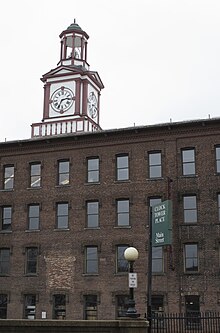In the field of finance, private equity (PE) is stock in a private company that does not offer stock to the general public. Private equity is offered instead to specialized investment funds and limited partnerships that take an active role in the management and structuring of the companies. In casual usage, "private equity" can refer to these investment firms rather than the companies that they invest in.

Venture capital (VC) is a form of private equity financing that is provided by firms or funds to startup, early-stage, and emerging companies that have been deemed to have high growth potential or which have demonstrated high growth. Venture capital firms or funds invest in these early-stage companies in exchange for equity, or an ownership stake. Venture capitalists take on the risk of financing risky start-ups in the hopes that some of the companies they support will become successful. Because startups face high uncertainty, VC investments have high rates of failure. The start-ups are usually based on an innovative technology or business model and they are usually from high technology industries, such as information technology (IT), clean technology or biotechnology.
Bain Capital is an American private investment firm based in Boston. It specializes in private equity, venture capital, credit, public equity, impact investing, life sciences, crypto, tech opportunities, partnership opportunities, special situations, and real estate. Bain Capital invests across a range of industry sectors and geographic regions. As of 2022, the firm managed approximately $165 billion of investor capital. The firm was founded in 1984 by partners from the consulting firm Bain & Company. The company is headquartered at 200 Clarendon Street in Boston with 22 offices in North America, Europe, Asia, and Australia.
Georges Frédéric Doriot was a French-American known for his prolific careers in military, academics, business and education.
Harlan Anderson was an American engineer and entrepreneur, best known as the co-founder of Digital Equipment Corporation (DEC), which later became the second largest computer company in the world. Other notable entities that Anderson has been associated with include Lincoln Laboratory at the Massachusetts Institute of Technology, where he was a member of the technical staff. He served as Director of Technology for Time, Inc., where he spearheaded their evaluation of the future of the printed word during the explosion of television, long before the Internet existed.

TA Associates, founded in 1968, is one of the early modern-era private equity firms in the United States. The firm leads buyouts and minority recapitalizations of profitable growth companies. TA invests across five industry groups: technology, healthcare, consumer products, financial services and business services.
Testa, Hurwitz & Thibeault was a Boston-based law firm of approximately 400 attorneys at its peak in 2002 with revenues approaching $450 million. It dissolved in 2005 amid partner departures and the burst of the dot-com bubble.
A Business Development Company ("BDC") is a form of unregistered closed-end investment company in the United States that invests in small and mid-sized businesses. This form of company was created by the US Congress in 1980 in the amendments to the Investment Company Act of 1940. Publicly filing firms may elect regulation as BDCs if they meet certain requirements of the Investment Company Act.

CCMP Capital Advisors, LP is an American private equity investment firm that focuses on leveraged buyout and growth capital transactions. Formerly known as JP Morgan Partners, the investment professionals of JP Morgan Partners separated from JPMorgan Chase on July 31, 2006. CCMP has invested approximately $12 billion in leveraged buyout and growth capital transactions since inception. In 2007, CCMP was ranked #17 among the world's largest private equity funds.

The history of private equity, venture capital, and the development of these asset classes has occurred through a series of boom-and-bust cycles since the middle of the 20th century. Within the broader private equity industry, two distinct sub-industries, leveraged buyouts and venture capital experienced growth along parallel, although interrelated tracks.

Court Square Capital Partners is a private equity firm focused on leveraged buyout transactions. Court Square was originally a captive private equity firm within Citigroup known as Citigroup Venture Capital Equity Partners. Court Square's investment professionals have invested over $4.5 billion in more than 150 transactions, which have returned $14 billion to date.

The early history of private equity relates to one of the major periods in the history of private equity and venture capital. Within the broader private equity industry, two distinct sub-industries, leveraged buyouts and venture capital experienced growth along parallel although interrelated tracks.

Private equity in the 1980s relates to one of the major periods in the history of private equity and venture capital. Within the broader private equity industry, two distinct sub-industries, leveraged buyouts and venture capital experienced growth along parallel although interrelated tracks.

Private equity in the 1990s relates to one of the major periods in the history of private equity and venture capital. Within the broader private equity industry, two distinct sub-industries, leveraged buyouts and venture capital, experienced growth along parallel although interrelated tracks.

Private equity in the 2000s represents one of the major growth periods in the history of private equity and venture capital. Within the broader private equity industry, two distinct sub-industries, leveraged buyouts and venture capital expanded along parallel and interrelated tracks.

Metalmark Capital, formerly Morgan Stanley Capital Partners is a private equity firm focused on leveraged buyout investments in middle-market companies across a range of industries. Metalmark was acquired by Citigroup Alternative Investments in December 2007.
Corporate venture capital (CVC) is the investment of corporate funds directly in external startup companies. CVC is defined by the Business Dictionary as the "practice where a large firm takes an equity stake in a small but innovative or specialist firm, to which it may also provide management and marketing expertise; the objective is to gain a specific competitive advantage." Examples of CVCs include GV and Intel Capital.
Needham & Company, LLC is an independent investment bank and asset management firm specializing in advisory services and financings for growth companies. Needham & Company is a wholly owned subsidiary of The Needham Group, which also operates a private equity investment business and an investment management business.
Entrepreneurial finance is the study of value and resource allocation, applied to new ventures. It addresses key questions which challenge all entrepreneurs: how much money can and should be raised; when should it be raised and from whom; what is a reasonable valuation of the startup; and how should funding contracts and exit decisions be structured.

Dymon Asia is an Asia-focused investment management firm based in Singapore. It is considered one of the largest hedge funds in Singapore and Asia.







